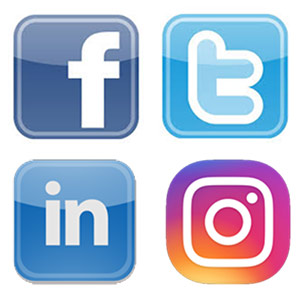
What is “Social Networking” anyway?
We hear this term frequently in the media, but what does it actually mean? Social networking is an umbrella term used to describe sites such as Facebook, LinkedIn, Instagram and Twitter. Social networking is a term used to denote the trend toward people connecting and interacting online.
Much is now being written on how these sites and trends can be used to promote commercial interests on the web, focusing mostly on engaging customers and interacting with them in new ways.
For example, many website owners have been advised to start a Facebook page, yet few of them get more than a handful “likes” and “friends” and the page becomes a negative advertisement, damned with faint praise as it were.
For social networking to work commercially, the business owner (or their agents, in the case of Richard Branson or Anthony Robbins) has to be constantly “posting” and gathering “friends”, “followers” or “contacts”.
Is social networking worth the time?
Social media creates a time overhead for a small business. Often the small business owner spends hours posting and promoting to a very small number of “friends” or “followers”, or worse they don’t, and their group, page or profile looks abandoned, like it was set up once and then forgotten. It raises the question, could their time be spent in other areas of their business, making a real difference.
On the other hand, some recreational products and services do really well and have a natural home on social media. Effort and attention are required to join and post in the relevant groups and pages, that said, social media offers a cost-effective way to reach a wider audience compared to traditional marketing channels. With the right content and effective targeting, businesses can attract potential customers who may have otherwise been difficult to reach. The ability to track engagement, gather insights, and refine marketing strategies further enhances the value of social media for small businesses.
Additional to, not a Replacement
Also, as they don’t own their page on Facebook, or anything they post there, the small business owner is playing someone else’s game and not their own. The small business owner mistakes Facebook for a substitute to their own website. It simply doesn’t do what their own website could, it can be a very useful adjunct, but it is certainly not the main game.
Which site should I use for What?

People are confused about what social networking site does what, so here is the skinny…
Facebook: used for connecting with friends and family for mostly personal reasons… sharing life events, thoughts and feelings, posting photos and inviting people to functions and events. Companies can create a page on Facebook as discussed above.
Twitter: the so-called “micro-blogging” site used by an author to expound and digress on a topic of interest… but only in 256 characters (about the length of an SMS message). People “follow” the author and can interact with them. Ideal for experts wanting to engage a niche audience… or US presidents to conduct foreign policy.
LinkedIn: used by mostly white-collar workers to network. The site provides work history, qualifications, referrals and recommendations. Recently blogging was added to the site and job ads are posted there.
Instagram: is primarily focused on images and video, and while there may be captions or locations shared along with the pictures, it’s a platform of few words. But it is owned by Facebook, and so has similar contacts and comments arrangements.
So to summarise, Facebook is to connect to friends and family, Twitter to engage a niche audience and LinkedIn to build a professional network, Instagram and Pinterest for photos and photo boards – in other words, they all do something quite different to each other and its best to use the right tool for the right job e.g. posting a Facebook styled post on LinkedIn would make the author look foolish.
Privacy & Copyright
But it is not all good. There have been concerns about privacy and the ownership of images and materials uploaded to these sites. Facebook particularly coming in for close criticism as it claims copyright on all pictures and comments added in an individuals feed. The bottom line is common sense (as it is in the offline world)… if you do not want some corporation to claim copyright on your photo, don’t upload it. Don’t make anyone a “friend” who simply isn’t.
Oversharing
Also, people are still learning how to use these sites, so sometimes they are unaware of what they are sharing with whom. For example, if they upload a picture of a group of people to Facebook, people who are friends with the person posting can “tag” the people in the picture i.e.. interact with the picture. When they do that, all of the people who are “friends” of the tagged person pictured, get a notification, alerting many more people to the picture than the original poster could have anticipated.
Social Summary
One thing is certain, we are going to be doing more social networking as people’s physical location becomes less relevant and work practices more flexible. People seem to have an innate desire to share – maybe its just ego and self-promotion, or maybe there is some genuine content there?
Wikipedia’s outline on social networking is here >>

